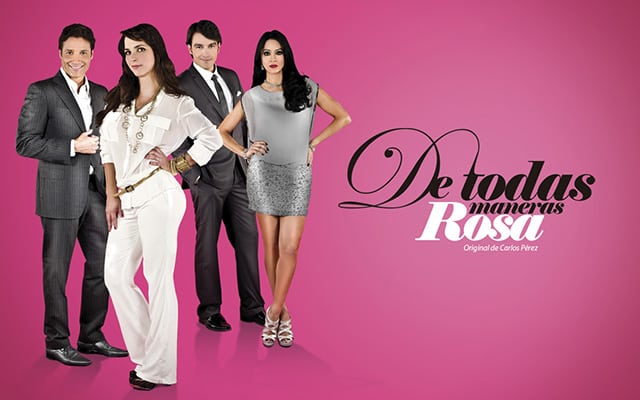

The debate over whether violent television and movies cause violent behavior in real life has been raging for years. After every unimaginable violent act in this country, the question of whether or not the perpetrators were influenced by what they saw in entertainment is asked. Soaps aren’t necessarily known for being extremely violent. Recently, however, foreign soap operas from two different countries have come under fire for promoting dangerous behavior.
As reported by The Associated Press, President Nicolas Maduro of Venezuela pinpointed the country’s soap operas as one of the main causes behind its spiraling crime rate in his State of the Union speech last week. Maduro specifically took aim at the show “De todas maneras Rosa” (Love Gone Crazy) and its production company Venevision. President Maduro accused the show and Venevision of contributing to the country’s violence by glorifying the crimes of the popular soap characters.
“De todas maneras Rosa” debuted in June 2013 and has since become a popular soap opera (or telenovela) in Venezuela. It features the romantic relationship between characters Rosa and Leonardo and a tragic accident that causes the two of them to be forced apart. The tragic accident? Rosa’s baby dies in an accidental explosion. But the plot that has been the most controversial is that of character Andreina Vallejo, a “a psychopathic former beauty queen who fatally poisons her own mother to hide the paternity of her son.”
Although this does seem quite graphic, it’s not necessarily unlike something you’d see on an American soap opera. After all, children on U.S. soaps are constantly in danger and “evil” family members are always threatening their relatives. So why is it having such an effect on Venezuela?
Venezuelan soap opera creator Alberto Barrera Tyszka, for one, thinks “it’s completely ridiculous to blame the violence on what’s seen for one or two hours a night on television.” He believes that the crime on Venezuelan soaps is simply reflecting their increasingly violent society, not causing it. Others echo his statement, attributing an increase of illegal firearms as the true cause behind the fifth highest homicide rate in the world.
It’s not known yet if the government will step in to place stricter rules on their television programming, but there is a law that was set in place in 2004 that holds TV operators to promote “socially responsible” programming. Venezuelan Vice President Jorge Arreaza is set to meet with network executives next week to make sure they are in compliance with that law.
But Venezuelan soaps aren’t the only ones being scrutinized this week. According to another report by the AP, there has been concerns over people potentially copying the suicide of a popular character on the British soap, “Coronation Street.” More than 10 million people tuned in to the show on Monday as a popular character sick with incurable pancreatic cancer purposely overdosed on their medication and died. While some praised the show for its sensitive handling of illness and death, others are afraid it risked encouraging suicide as an answer.
Anti-euthansia group Care Not Killing told the AP that the show “was in great danger of normalizing an occurrence that is actually very rare indeed.” Calls to suicide-prevention group The Samaritans have supposedly been increased by a third after the “Coronation Street” episode aired Monday, compared to the same time frame the week prior.
ITV, the network which airs the series in the UK, explained that “‘Coronation Street’ regularly features storylines that concern sensitive medical and social issues and it was recognized that [the character] Haley becoming terminally ill would have a profound resonance for our audience.” The show’s writers apparently reached out to suicide-prevention groups and cancer charities about the scripts and were careful with their depiction.
So what do you think? Can the negative actions of a popular soap opera character have an effect on people so much so that they’d want to emulate those crimes in real life? “Anti-hero” characters have become increasingly popular on American soaps. They are characters that do some pretty terrible things yet are still considered “good” on the show – prime examples being “General Hospital’s” Sonny Corinthos and “One Life to Live’s” Todd Manning – but do you think the writers and producers have a moral responsibility to be cautious over how they portray these characters?




